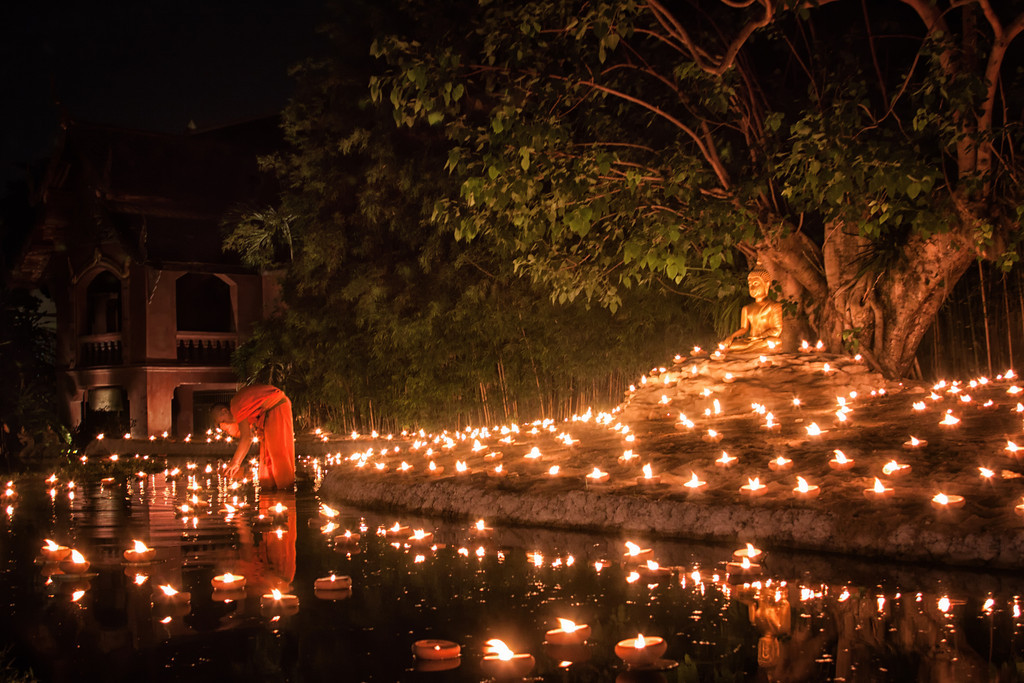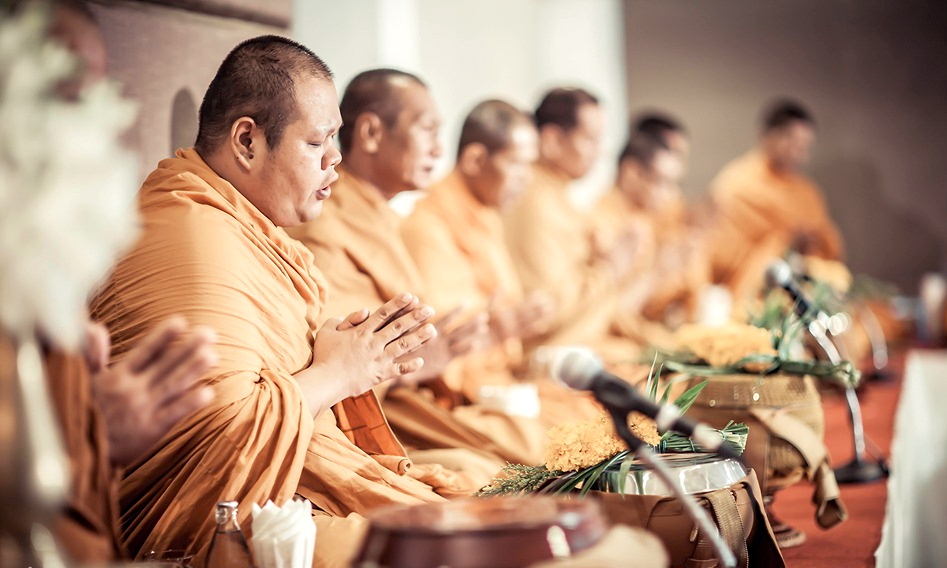Visaka Bucha day is a traditional holiday on which the Thai Buddhists, and in general Buddhists from all over the world, celebrate the three main events of Gautam Buddh’s life – His birth, enlightenment and his passing away. The day marks a special occasion in Thailand and for Thais living in other countries and is a declared public holiday. Communities following the Buddhism religion commemorate the values, traditions and knowledge enlightened by Lord Budhha on the society and celebrate this day with merit making, precept observation and meditation. Following is the detailed concept of the traditional rituals of Visaka Bucha day.

1. About Visaka Bucha
Visaka Bucha day is the full moon day of the sixth lunar eclipse marking the most important events of Lord Buddha’s life. The day is recognised as a worship day and remembrance for the teachings and social and spiritual values of Buddha. The day usually falls in the months of May and June. In case it was a year with the extra eighth lunar month – Adhikamasa – the day is celebrated on the full moon night of seventh lunar eclipse.

2. The Three Events
The three incidents of Gautam Buddh’s life – his birth, the day he achieved enlightenment and the day he died – miraculously falls on the same day, the full moon of sixth lunar eclipse. This has been a huge happening in Buddhist culture which people still celebrate.

3. Traditional Ritual
The Buddhist community celebrate this day by way of following rituals
- Tam Boon – it refers to merit making by way of visiting temples, donating food and money, joining budhhist activities and listening to Dham preaches.
- Rub Sil – this refers to observing the 5 precepts including the restraint from alcohol consumption.
- Tak Bard – this refers to offering of food to the monks and other trainees of the culture.
